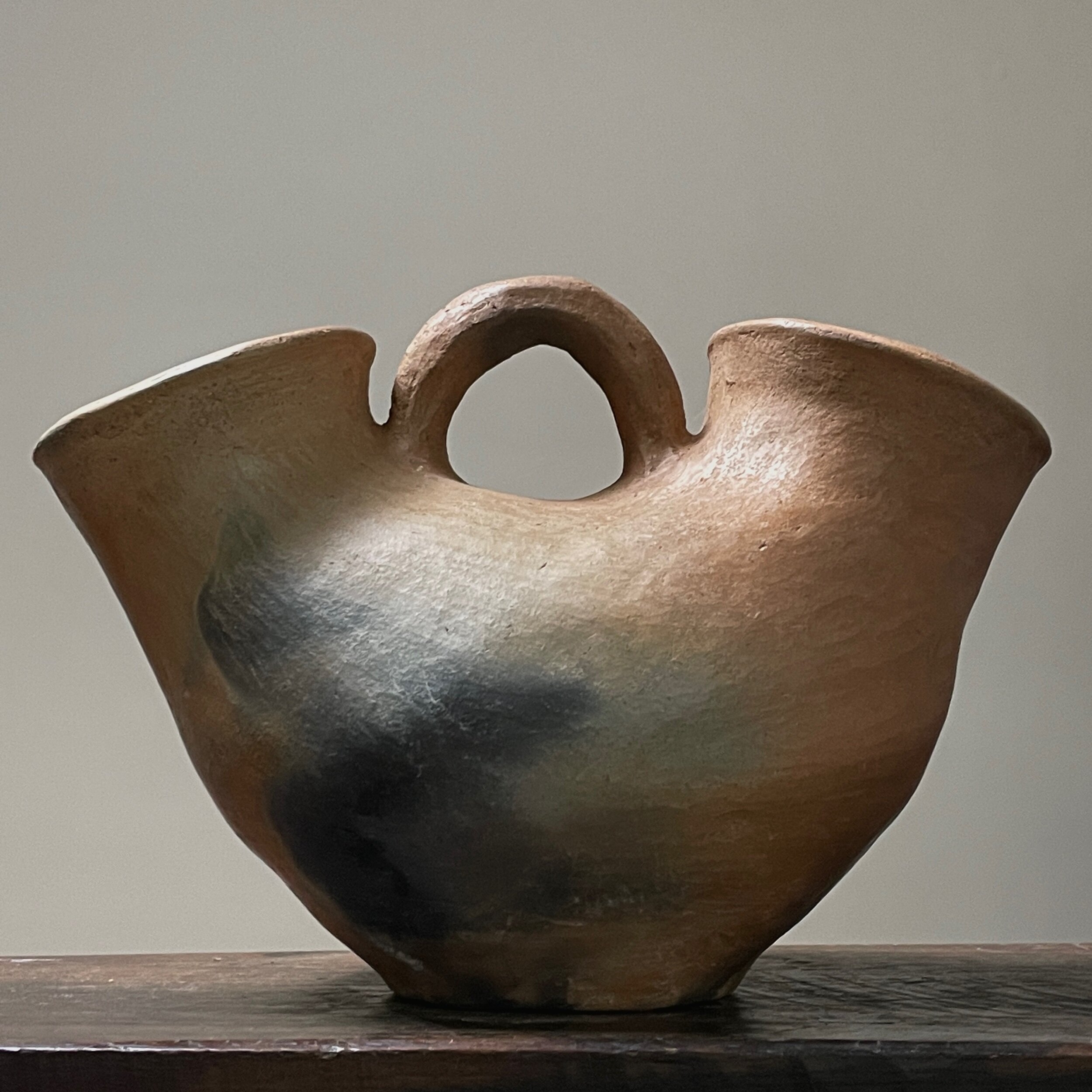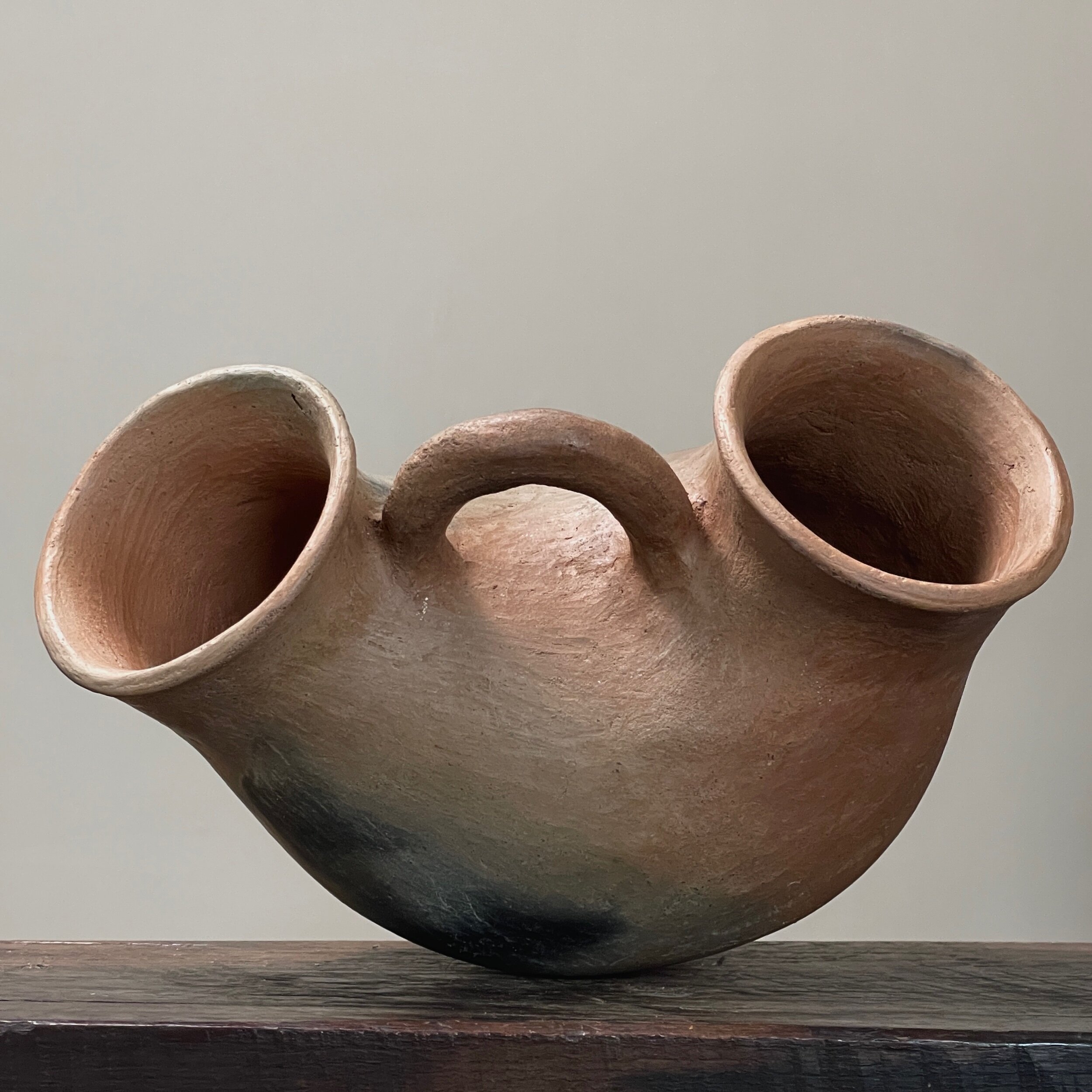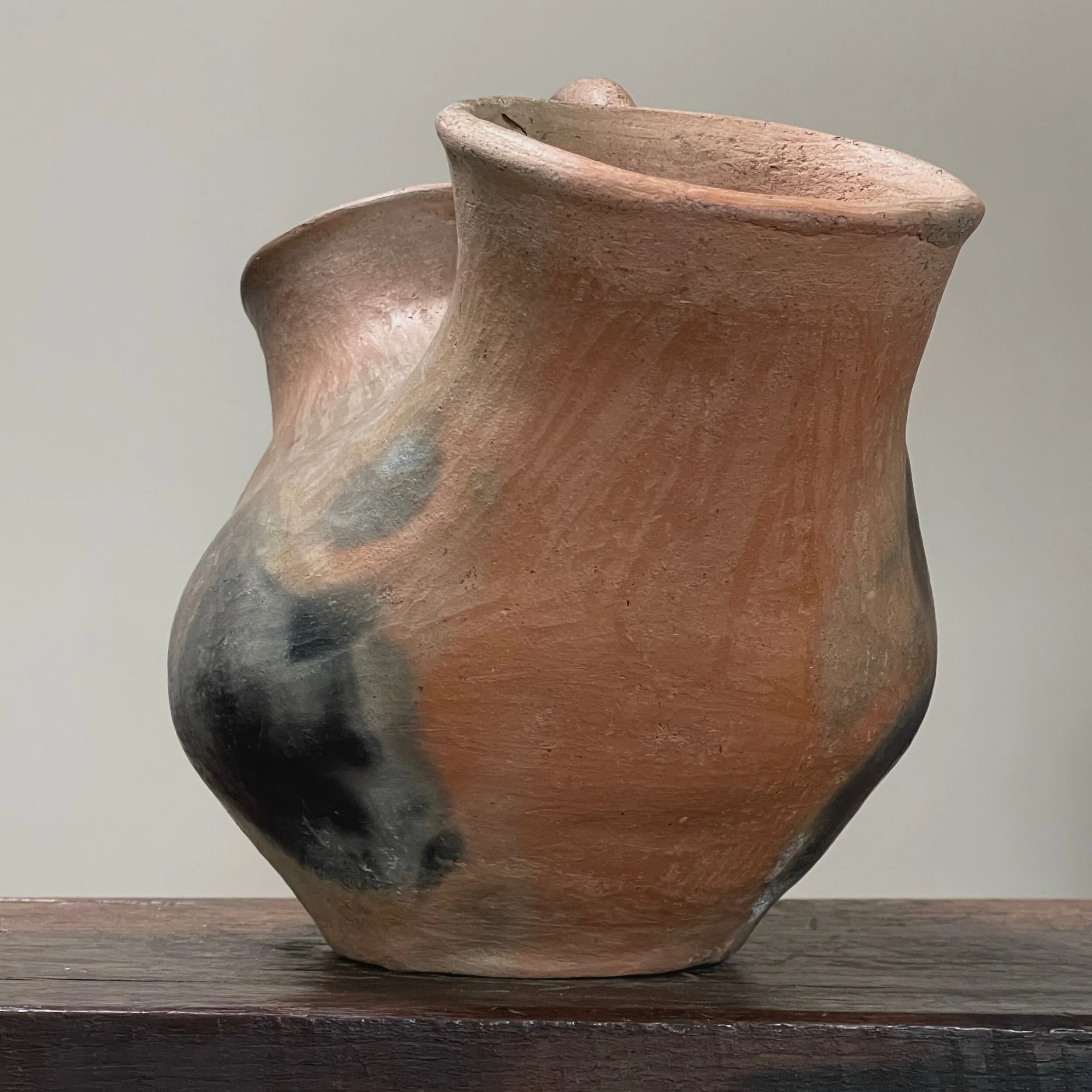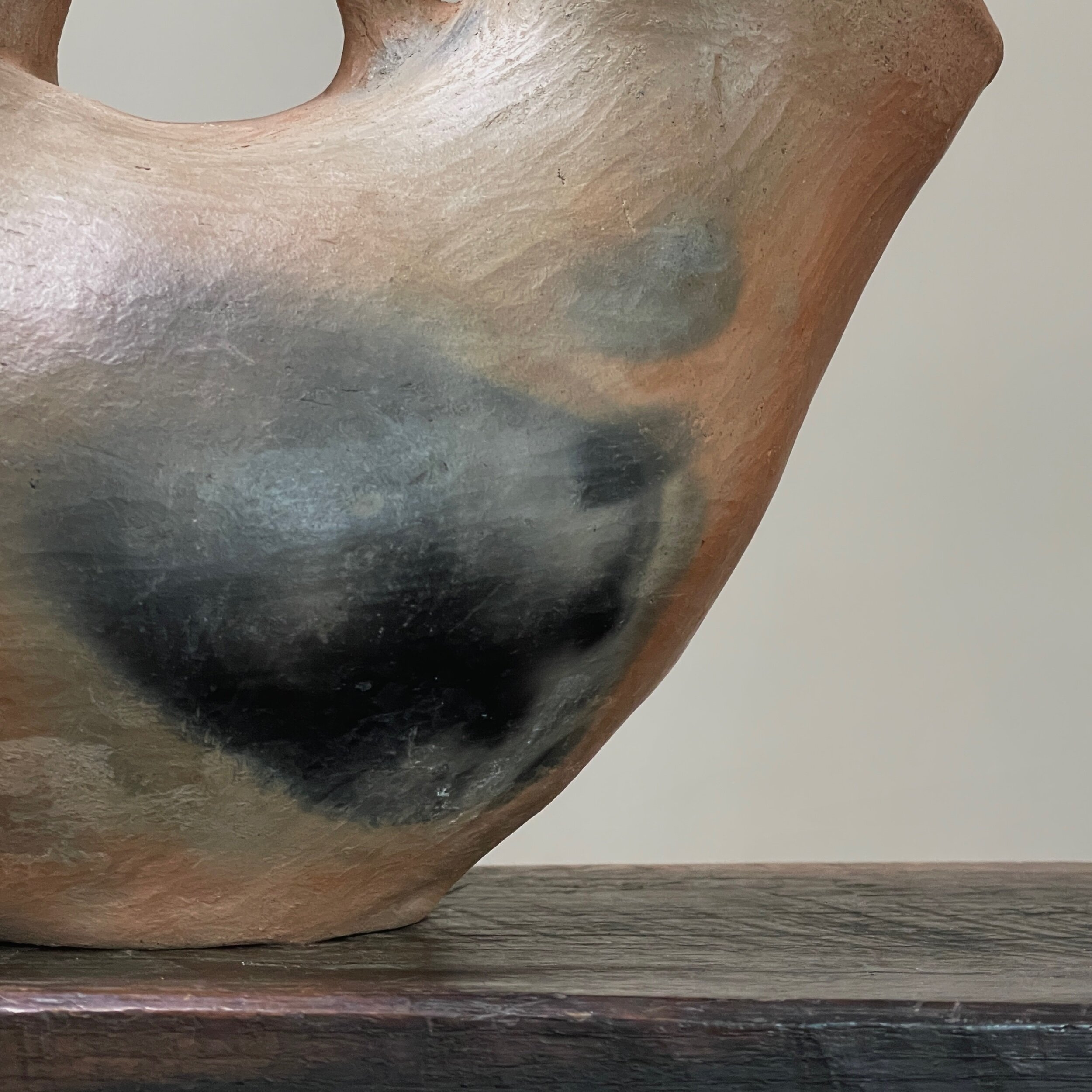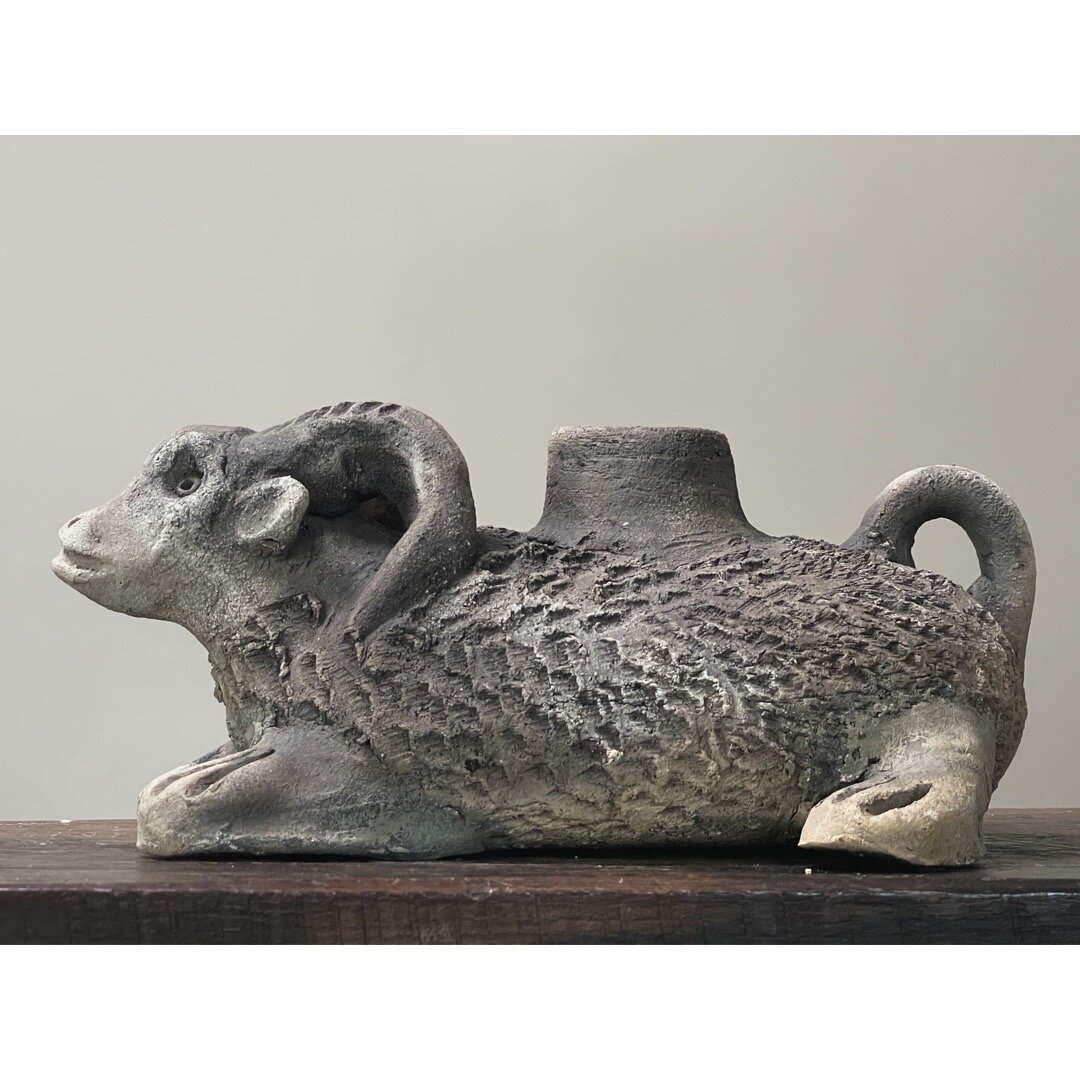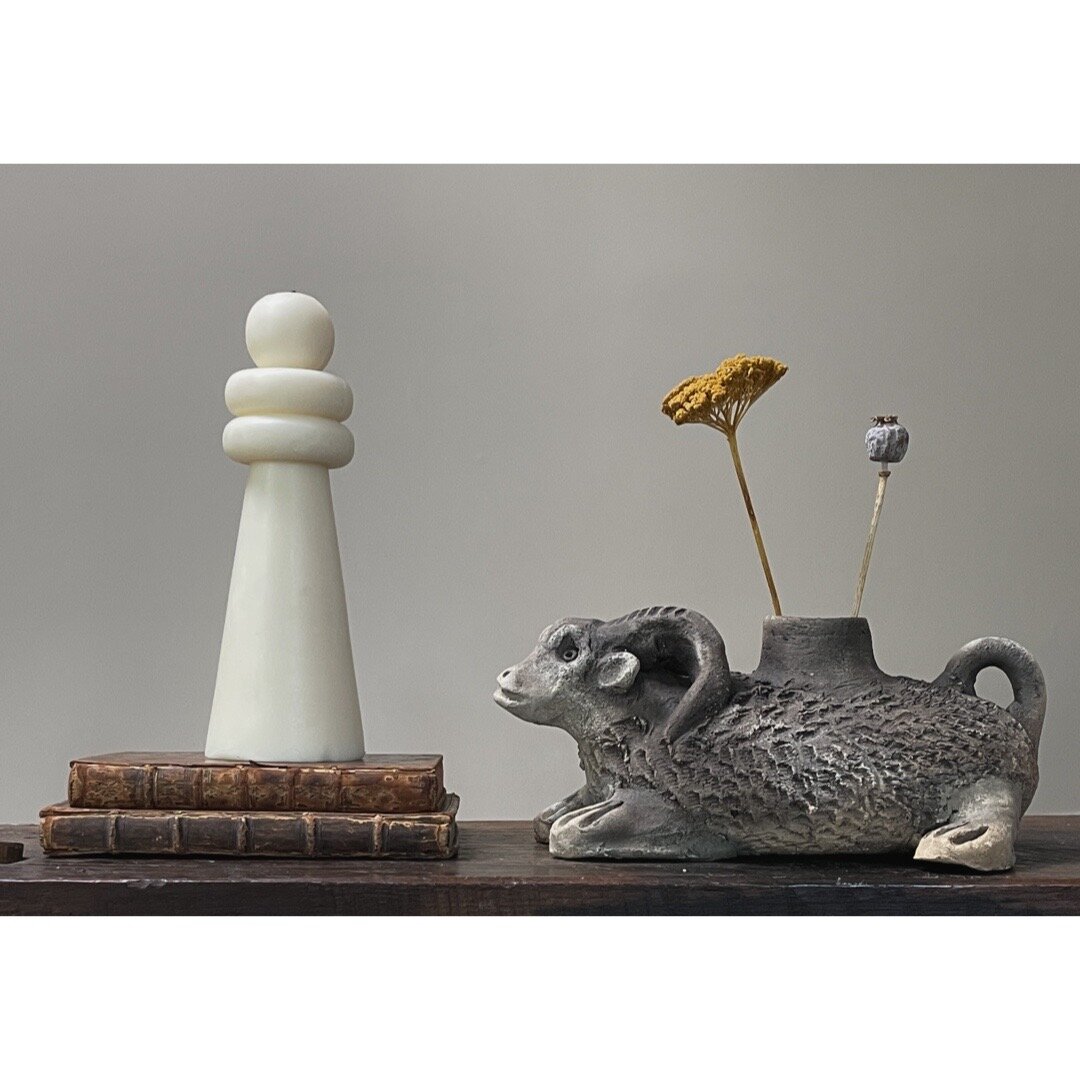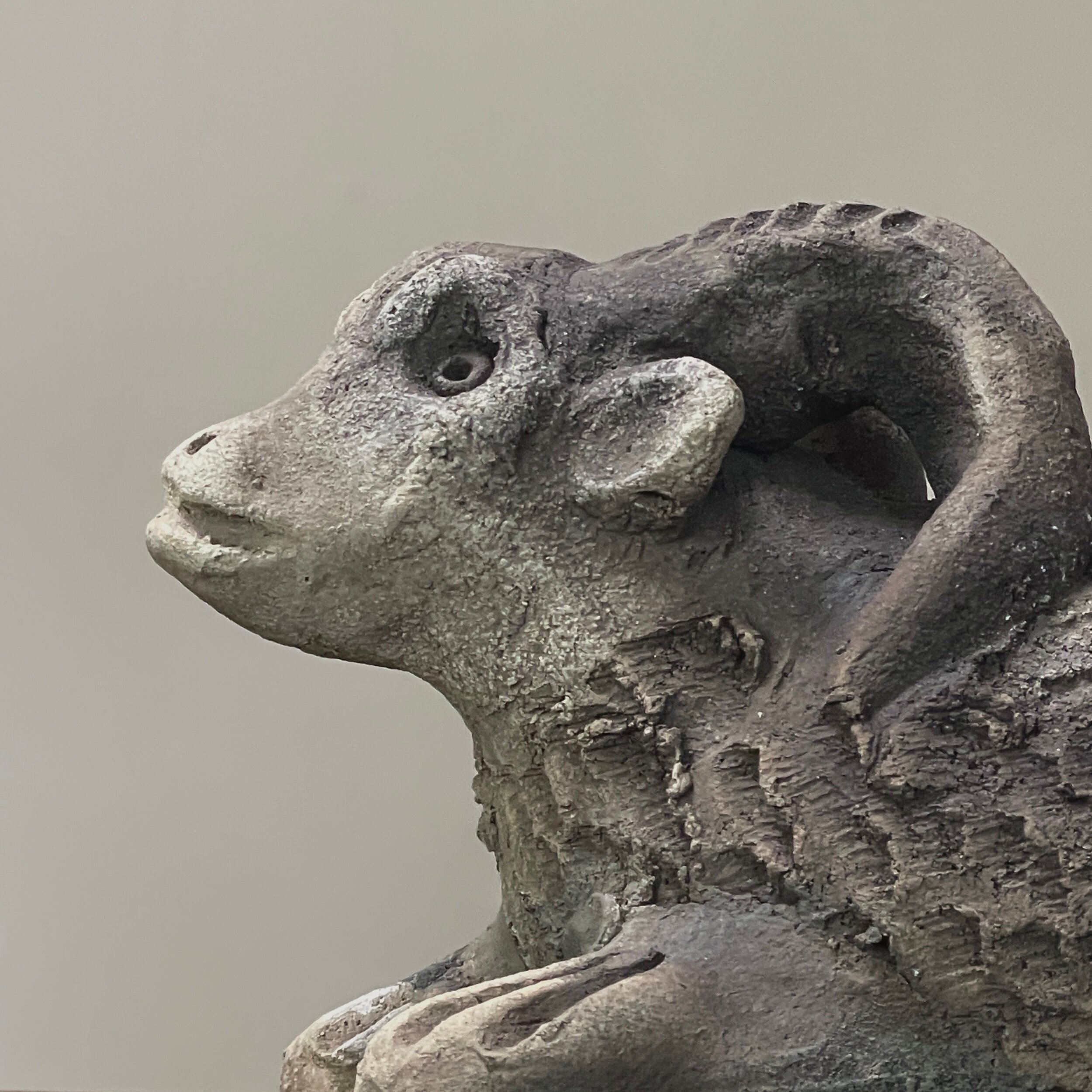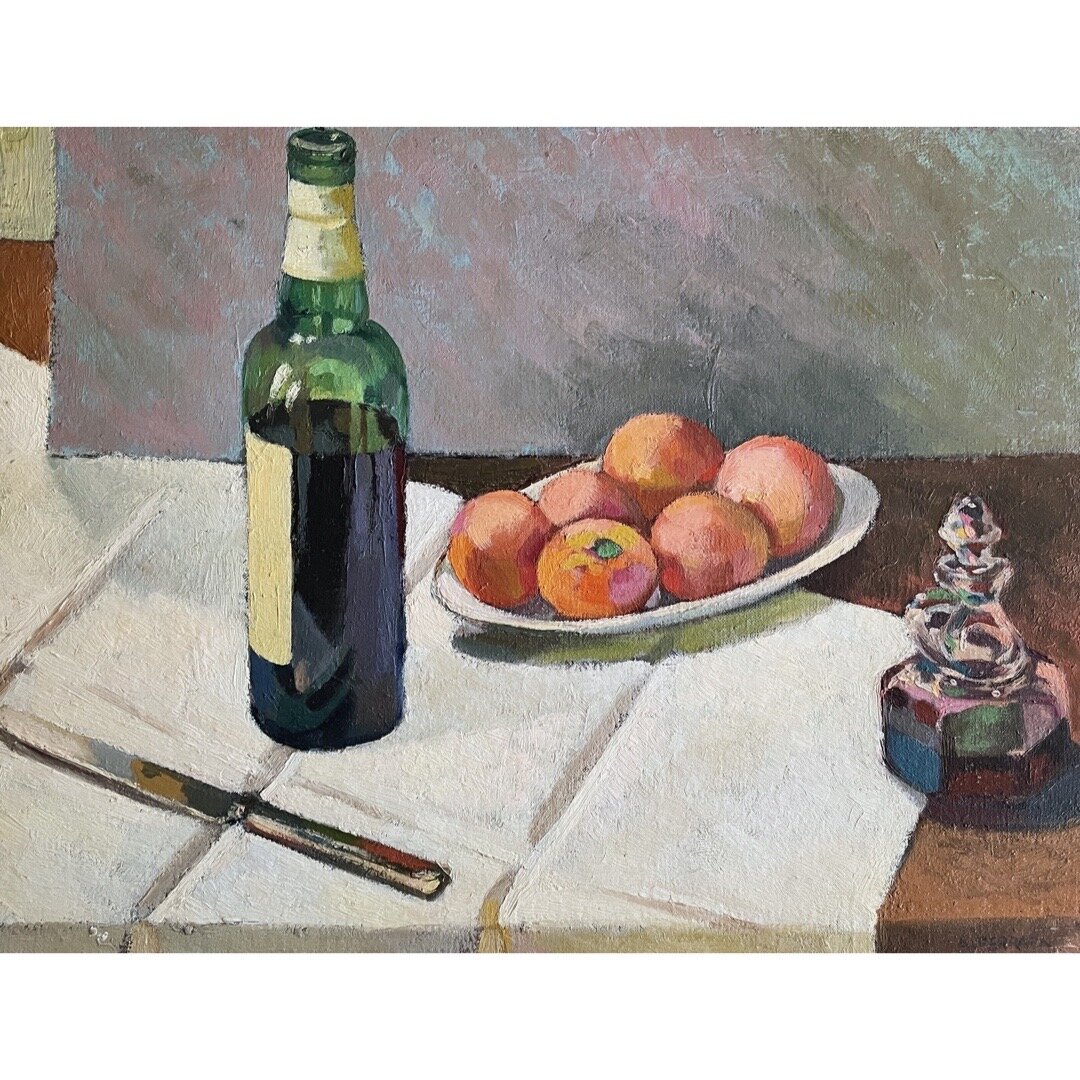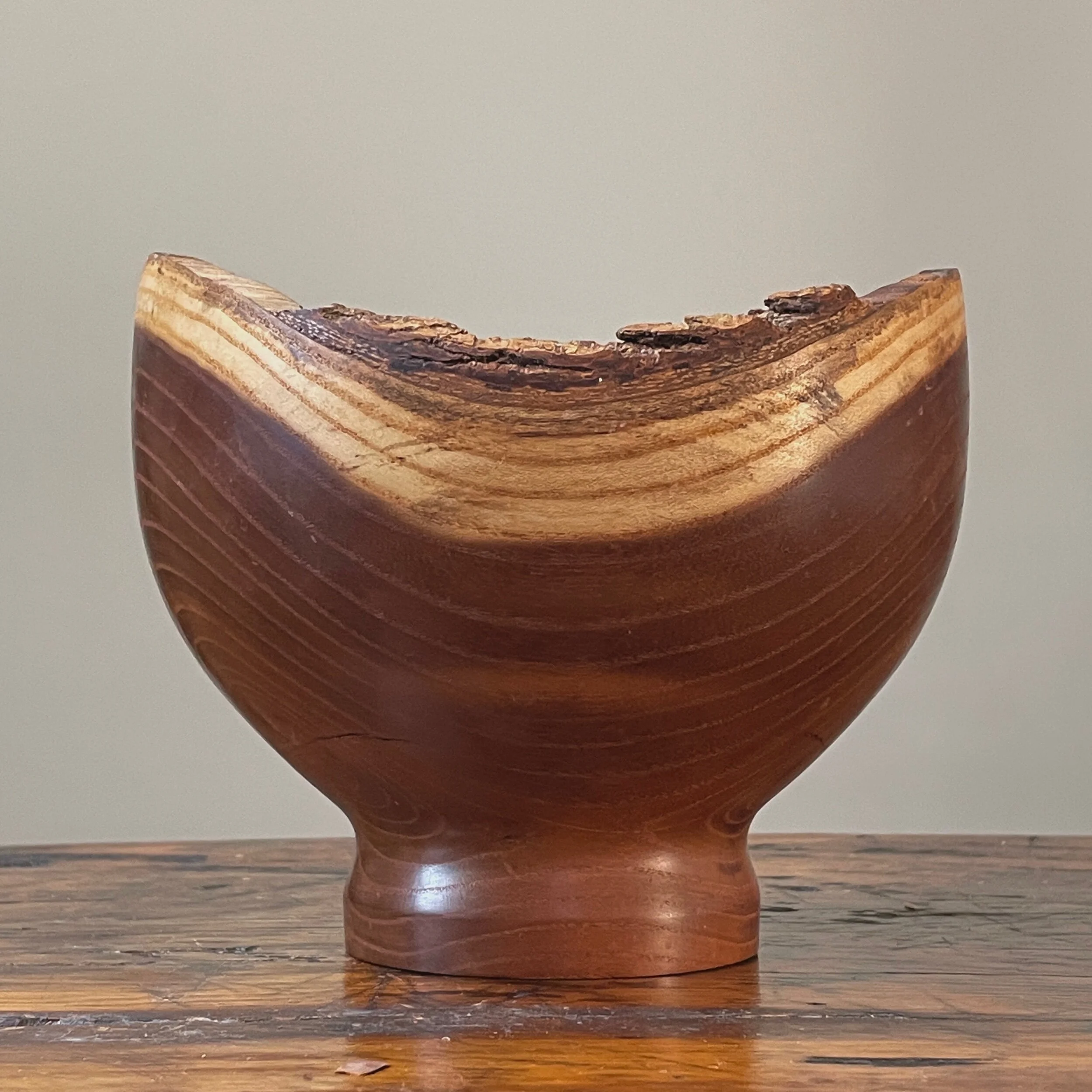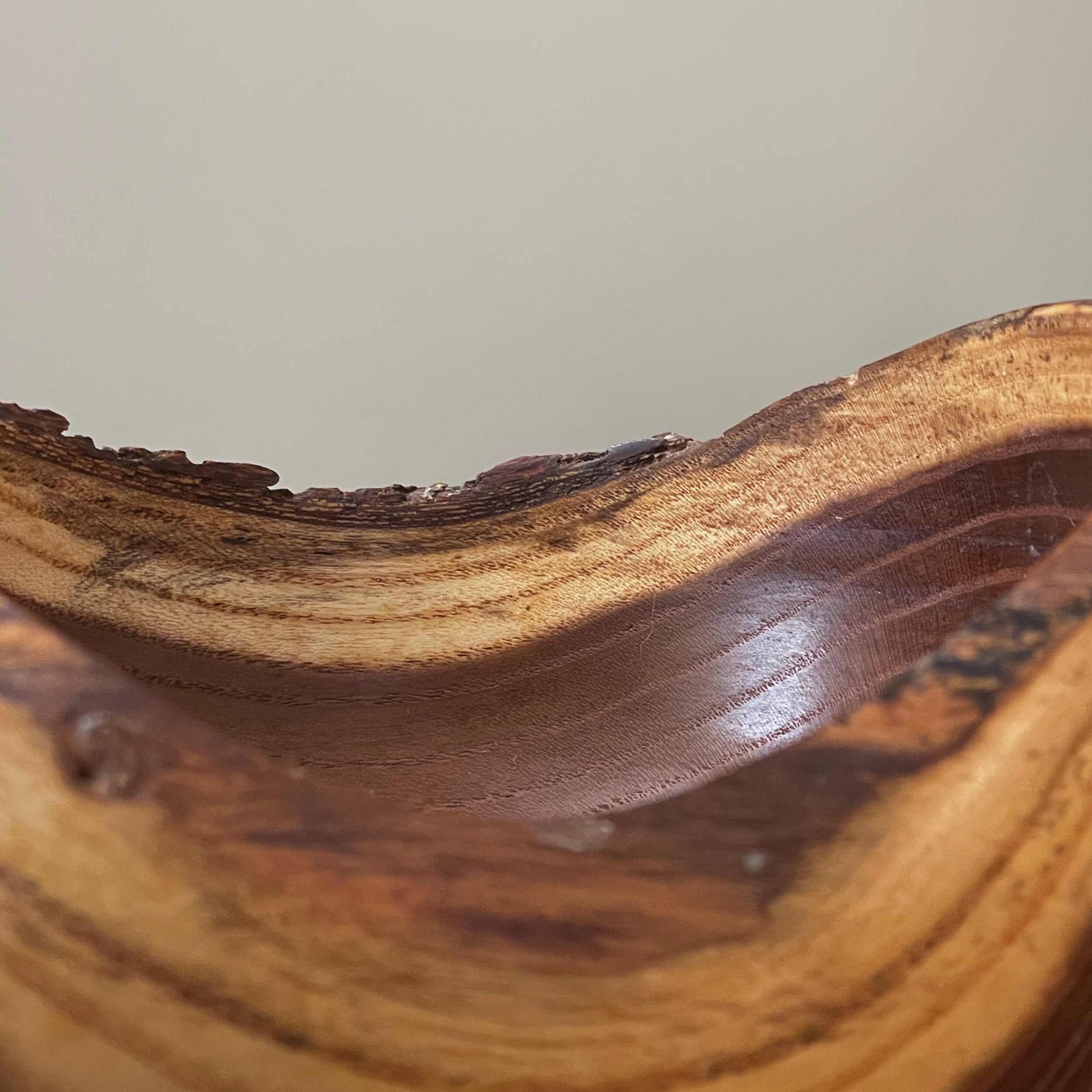 Image 1 of 15
Image 1 of 15

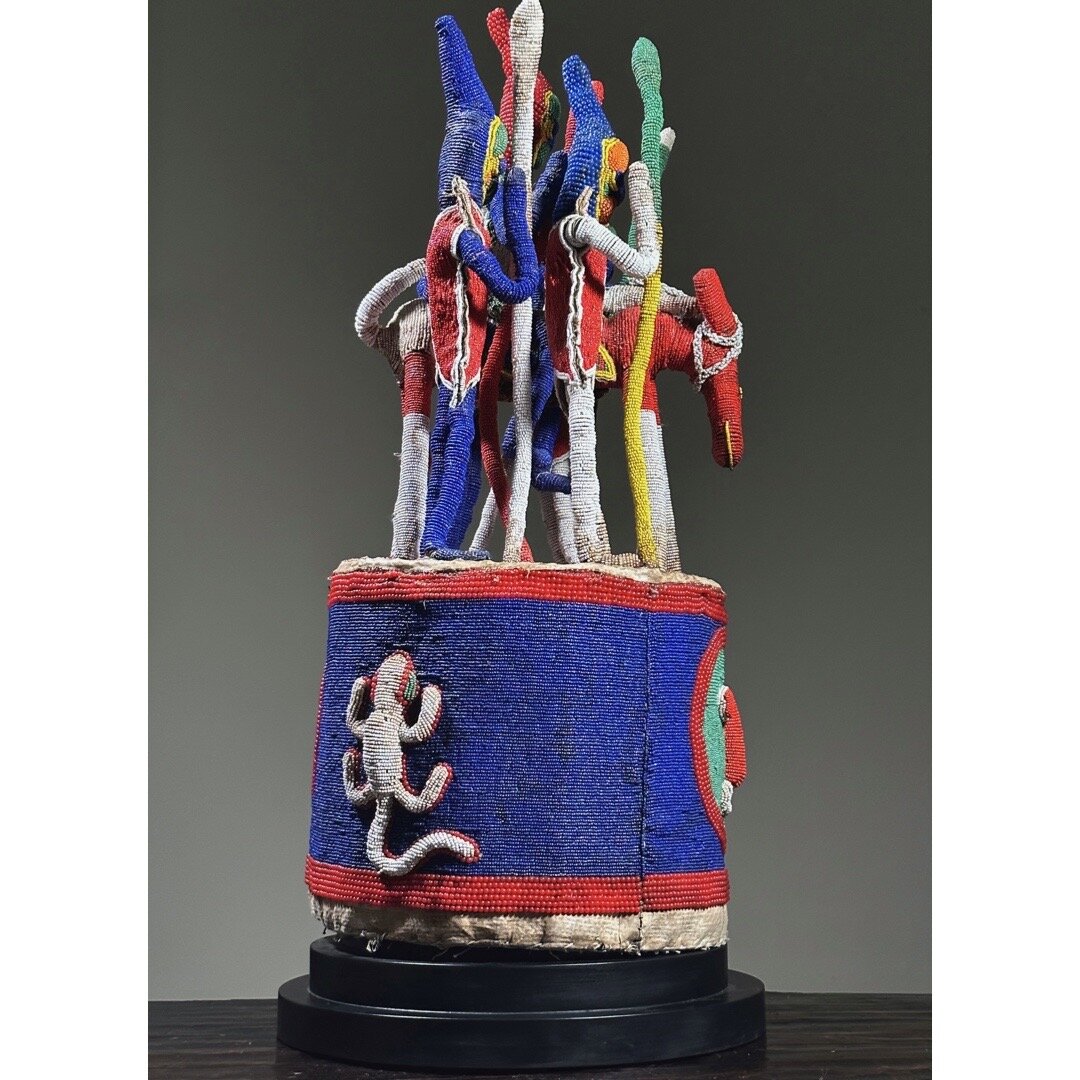 Image 2 of 15
Image 2 of 15

 Image 3 of 15
Image 3 of 15

 Image 4 of 15
Image 4 of 15

 Image 5 of 15
Image 5 of 15

 Image 6 of 15
Image 6 of 15

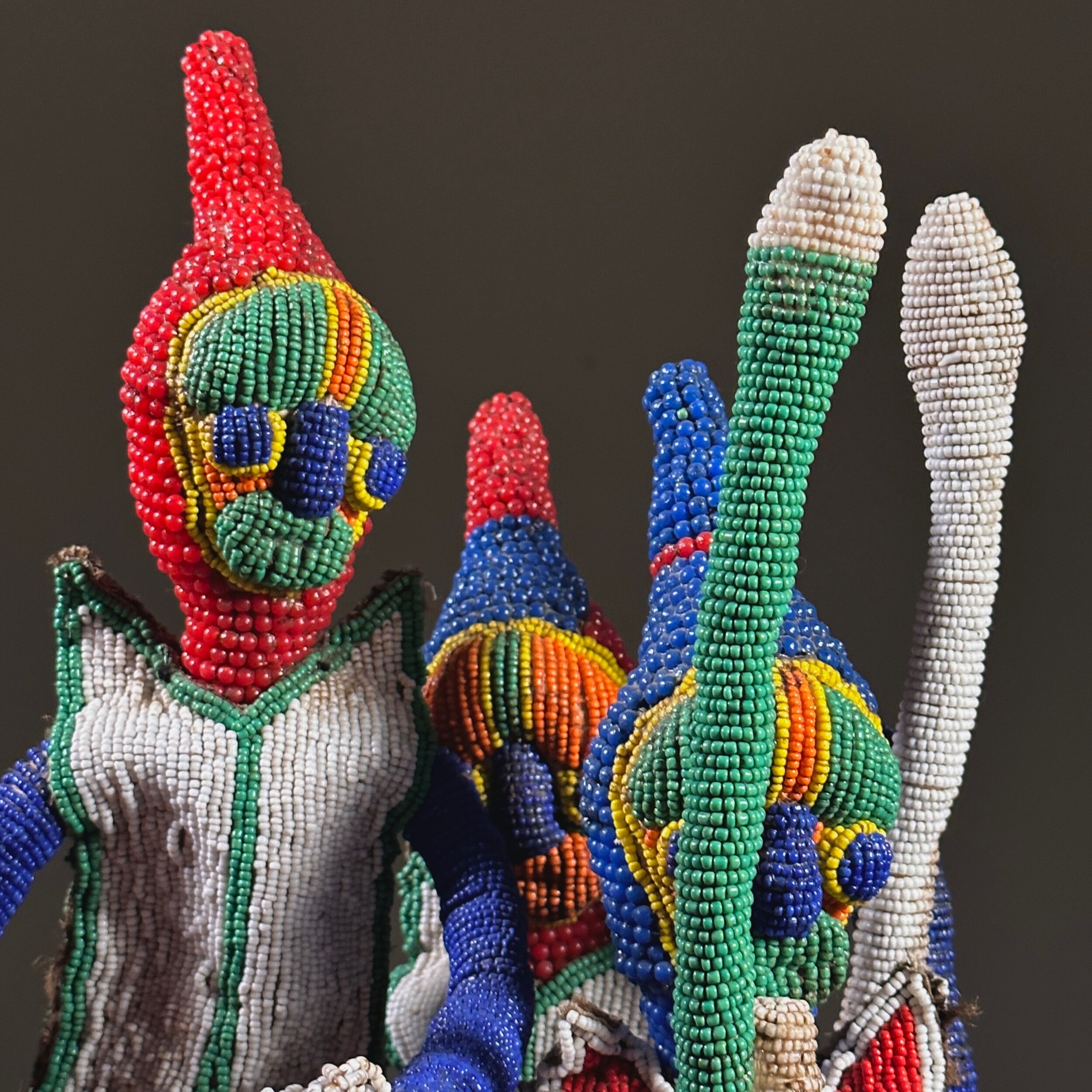 Image 7 of 15
Image 7 of 15

 Image 8 of 15
Image 8 of 15

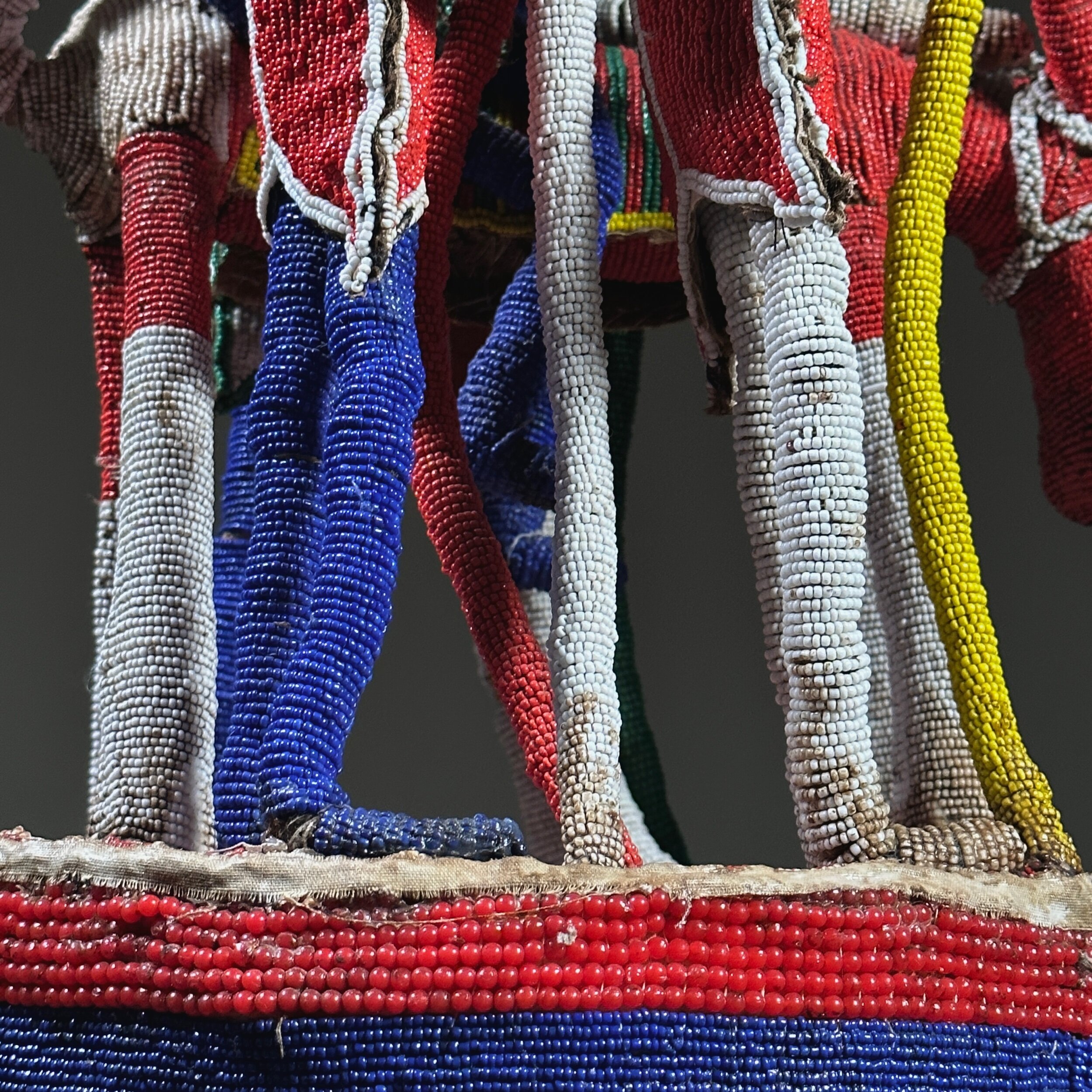 Image 9 of 15
Image 9 of 15

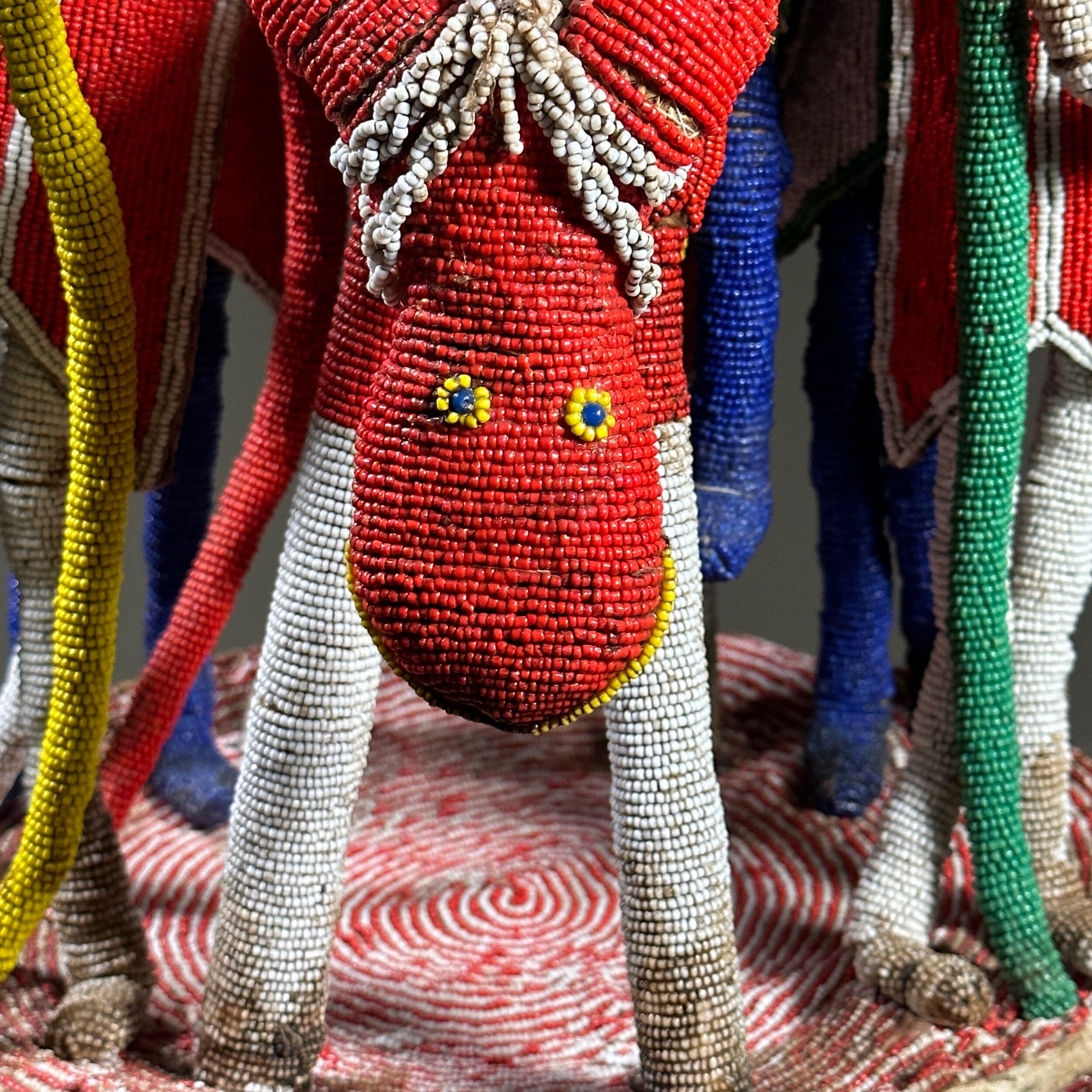 Image 10 of 15
Image 10 of 15

 Image 11 of 15
Image 11 of 15

 Image 12 of 15
Image 12 of 15

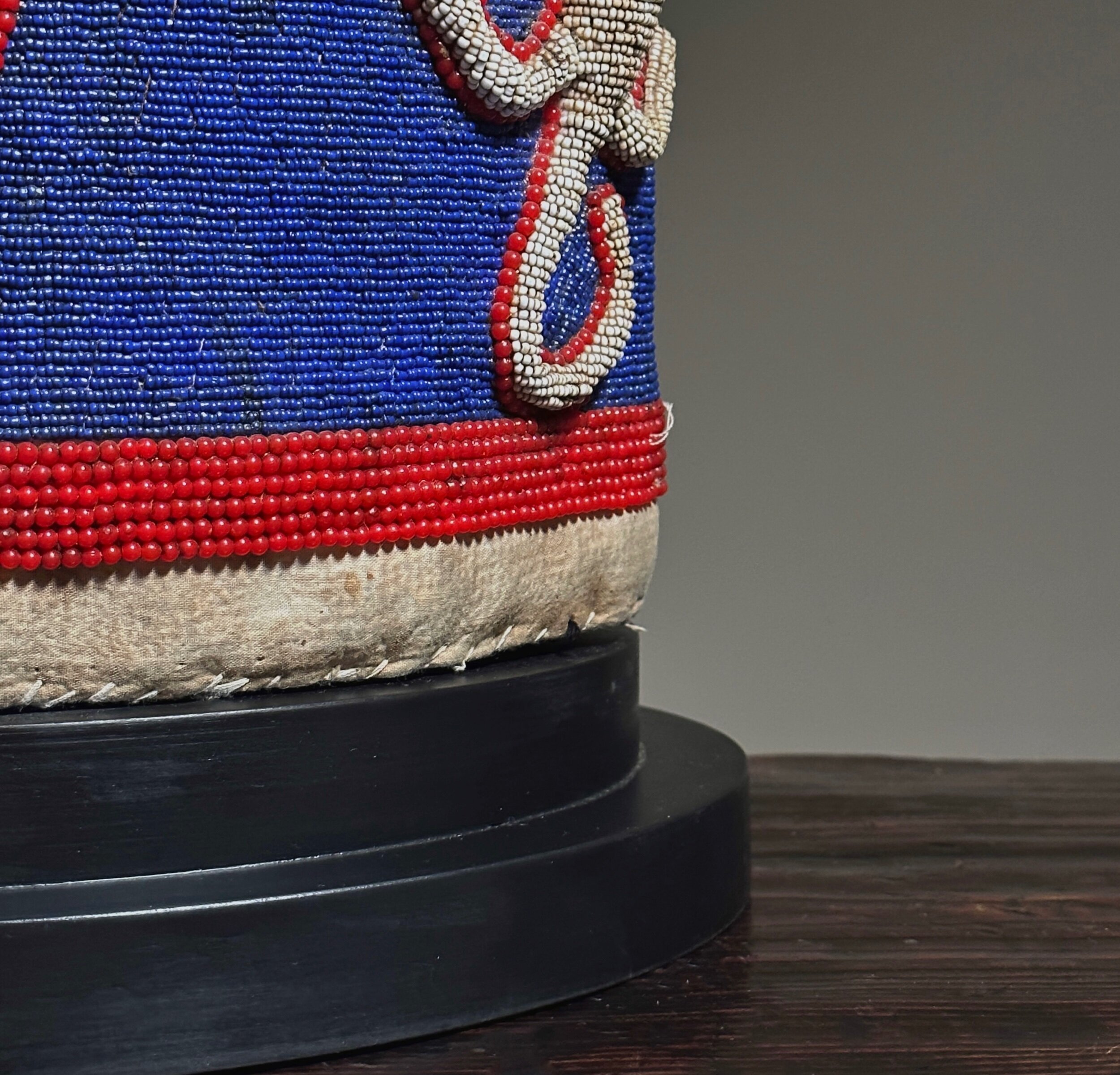 Image 13 of 15
Image 13 of 15

 Image 14 of 15
Image 14 of 15

 Image 15 of 15
Image 15 of 15
















Vintage Yoruba Hand Beaded Ceremonial Alter Crown with Stand
Vintage Yoruba Hand Beaded Ceremonial Alter Crown with Stand. Large Yoruba Altar piece with hand stitched glass beads. Warrior sits atop a donkey/horse surrounded by four figures. These crowns were normally too heavy to be worn as headdresses and were usually placed upon altars during ceremonies. Heavy custom black stand keeps the integrity of the base of the crown (typically these vintage crowns start to buckle from the weight of the top piece). In good condition with wear consistent with age. Please refer to photos for details.
Size: 31.5'' x 13'' x 13'' (80 x 33 x 33 cm)
Among the most spectacular beaded objects from Africa are the crowns of Yoruba kings in Nigeria. Yoruba rulers wear crowns on state occasions and during public functions. Most are cone-shaped, with forms or features built up, then embellished over the entire surface with beads of vibrant colors.
Beaded Yoruba crowns and other artifacts do not just signify high social status. Beads are considered sacred to the Yoruba, and only kings and priests powerful enough to span the boundary between the secular and the divine are allowed to wear them. The crown (or ade) is the most important object in royal Yoruba regalia, and the right to wear one is limited to a small number of kings (obas) descended from royal families. The beaded veil that hangs down from the headdress is an important part of the crown. By covering the king's face, the veil downplays the king's identity as an individual and reinforces his role as divine leader. The veil is also said to protect onlookers from the king's powerful gaze.
The faces on the crowns represent and honor ancestors, one of whom might be Oduduwa, the mythic founder and first king of the Yoruba people. As such, the faces serve as reminders of the royal line, royal ancestors and the tradition of the monarchy.
The inclusion of birds on many of the crowns refers to the spirit world and the king's ability to mediate between the realms of human beings and spirits, the secular world and the spiritual one. Birds are also said to represent female power, in its nurturing (motherly) and destructive (witch-like) aspects. It is commonly accepted that the oba (king) cannot rule without the cooperation and support of the women in his village.
Repeated patterns in the design suggest the interconnectedness of all life and the balance needed to sustain it. On a crown, such patterns can furthermore refer to the connection between the current king (oba) to previous kings through the hereditary line.
Vintage Yoruba Hand Beaded Ceremonial Alter Crown with Stand. Large Yoruba Altar piece with hand stitched glass beads. Warrior sits atop a donkey/horse surrounded by four figures. These crowns were normally too heavy to be worn as headdresses and were usually placed upon altars during ceremonies. Heavy custom black stand keeps the integrity of the base of the crown (typically these vintage crowns start to buckle from the weight of the top piece). In good condition with wear consistent with age. Please refer to photos for details.
Size: 31.5'' x 13'' x 13'' (80 x 33 x 33 cm)
Among the most spectacular beaded objects from Africa are the crowns of Yoruba kings in Nigeria. Yoruba rulers wear crowns on state occasions and during public functions. Most are cone-shaped, with forms or features built up, then embellished over the entire surface with beads of vibrant colors.
Beaded Yoruba crowns and other artifacts do not just signify high social status. Beads are considered sacred to the Yoruba, and only kings and priests powerful enough to span the boundary between the secular and the divine are allowed to wear them. The crown (or ade) is the most important object in royal Yoruba regalia, and the right to wear one is limited to a small number of kings (obas) descended from royal families. The beaded veil that hangs down from the headdress is an important part of the crown. By covering the king's face, the veil downplays the king's identity as an individual and reinforces his role as divine leader. The veil is also said to protect onlookers from the king's powerful gaze.
The faces on the crowns represent and honor ancestors, one of whom might be Oduduwa, the mythic founder and first king of the Yoruba people. As such, the faces serve as reminders of the royal line, royal ancestors and the tradition of the monarchy.
The inclusion of birds on many of the crowns refers to the spirit world and the king's ability to mediate between the realms of human beings and spirits, the secular world and the spiritual one. Birds are also said to represent female power, in its nurturing (motherly) and destructive (witch-like) aspects. It is commonly accepted that the oba (king) cannot rule without the cooperation and support of the women in his village.
Repeated patterns in the design suggest the interconnectedness of all life and the balance needed to sustain it. On a crown, such patterns can furthermore refer to the connection between the current king (oba) to previous kings through the hereditary line.
Vintage Yoruba Hand Beaded Ceremonial Alter Crown with Stand. Large Yoruba Altar piece with hand stitched glass beads. Warrior sits atop a donkey/horse surrounded by four figures. These crowns were normally too heavy to be worn as headdresses and were usually placed upon altars during ceremonies. Heavy custom black stand keeps the integrity of the base of the crown (typically these vintage crowns start to buckle from the weight of the top piece). In good condition with wear consistent with age. Please refer to photos for details.
Size: 31.5'' x 13'' x 13'' (80 x 33 x 33 cm)
Among the most spectacular beaded objects from Africa are the crowns of Yoruba kings in Nigeria. Yoruba rulers wear crowns on state occasions and during public functions. Most are cone-shaped, with forms or features built up, then embellished over the entire surface with beads of vibrant colors.
Beaded Yoruba crowns and other artifacts do not just signify high social status. Beads are considered sacred to the Yoruba, and only kings and priests powerful enough to span the boundary between the secular and the divine are allowed to wear them. The crown (or ade) is the most important object in royal Yoruba regalia, and the right to wear one is limited to a small number of kings (obas) descended from royal families. The beaded veil that hangs down from the headdress is an important part of the crown. By covering the king's face, the veil downplays the king's identity as an individual and reinforces his role as divine leader. The veil is also said to protect onlookers from the king's powerful gaze.
The faces on the crowns represent and honor ancestors, one of whom might be Oduduwa, the mythic founder and first king of the Yoruba people. As such, the faces serve as reminders of the royal line, royal ancestors and the tradition of the monarchy.
The inclusion of birds on many of the crowns refers to the spirit world and the king's ability to mediate between the realms of human beings and spirits, the secular world and the spiritual one. Birds are also said to represent female power, in its nurturing (motherly) and destructive (witch-like) aspects. It is commonly accepted that the oba (king) cannot rule without the cooperation and support of the women in his village.
Repeated patterns in the design suggest the interconnectedness of all life and the balance needed to sustain it. On a crown, such patterns can furthermore refer to the connection between the current king (oba) to previous kings through the hereditary line.
You Might Also Like
